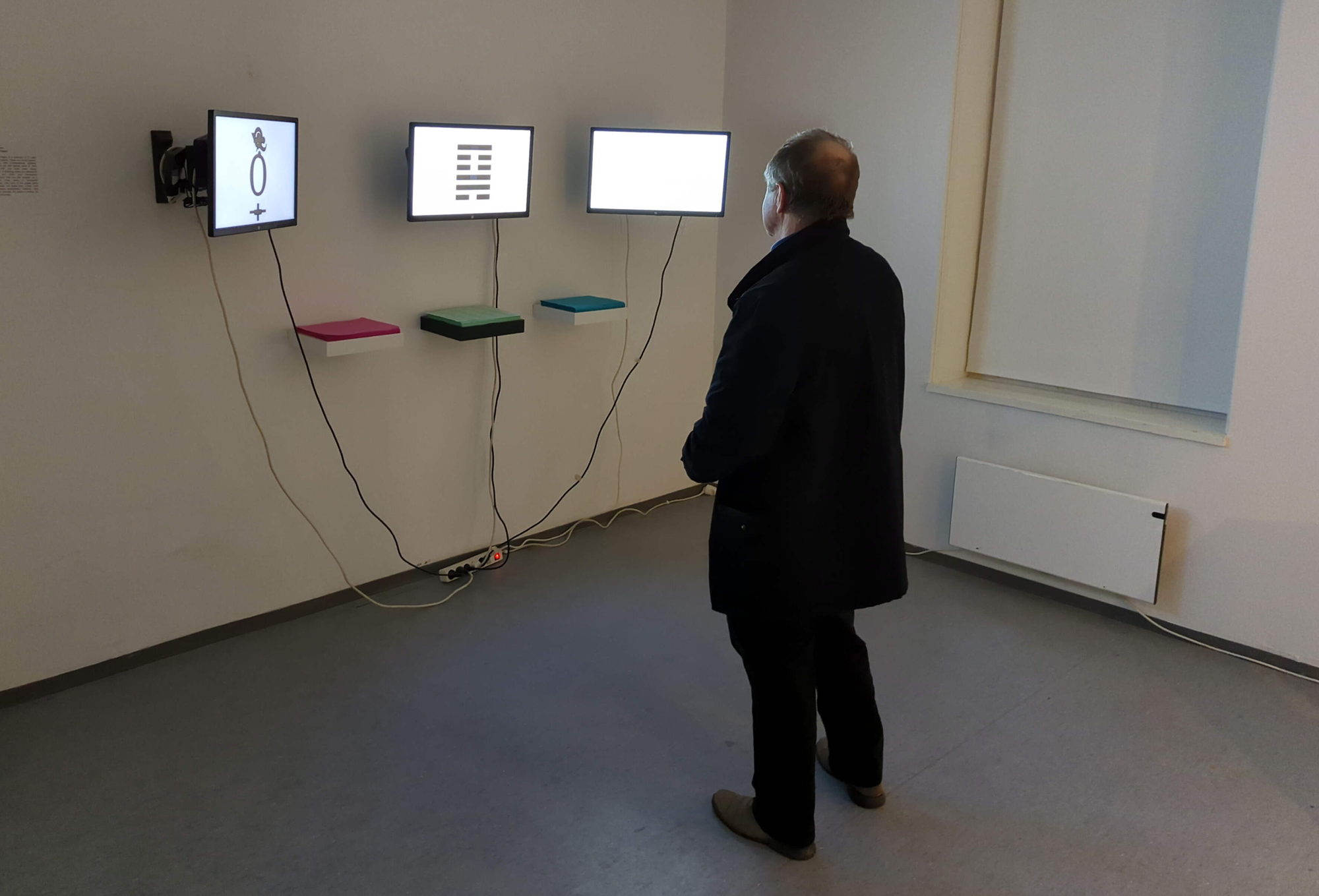

Nick Montfort
Nick Montfort’s computational language art project, Process Pages, was exhibited n Bergen, Norway, in 2022.
PHOTO: COURTESY OF NICK MONTFORT
Nick Montfort SM ’98 has a different perspective. A professor of digital media at MIT, he views computation as his artistic medium. His métier is “creative computing,” and he’d even venture to say that a computer program—or at least some computer programs—can be poetic.
For example, his book The Truelist (Counterpath Press, 2017) consists of a 120-page poem generated by a computer, followed by a program Montfort wrote that fits onto a single page. That’s the page he’s most proud of, because it contains everything needed to create the poem without having to draw upon any outside data sources. By combining different parts of words to form novel compound words, Montfort explains, this poem “invites the reader to imagine moving through a strange landscape that seems to arise from the English language itself.”
In the work he carries out in computer-generated poetry, Montfort sees himself as “an explorer of language, computing, and cognition. I do this in a more bottom-up way, and certainly in a less scientific way, than a computational linguist or cognitive scientist might, but I’m nevertheless curious about some of the same things.”
He became interested in digital art at an early age, immersing himself in interactive fiction during middle school. In college, he majored in both computer science and the humanities. He later completed two master’s degrees: one in media arts and sciences at MIT, and the other in poetry at Boston University, before going on to earn a PhD in computer science from the University of Pennsylvania. By then he had published two books and knew what he wanted to do: create literary art through computation.
Output, a book Montfort co-edited with Lillian-Yvonne Bertram, was published in November 2024 by the MIT Press. It’s a 500-page anthology, containing 200 selections from the field of computer-generated text dating back to the 1950s. For Montfort, one motivation for pursuing this book was to show that the notion of computer-generated text did not start in 2018 with the advent of GPT-1, the first large language model (LLM). “This is not an anti-LLM book,” he says, though he’s not overly impressed with what he’s seen from that realm so far. “LLMs allow a lot of people to be very superficially involved with the computer generation of text and to produce things that are, for the most part, not very good. But that doesn’t mean the future is hopeless.” He regards his work in creative computing as something very different. Rather than just giving a computer a few prompts from which it autonomously churns out a poem or other literary work, he writes the actual program from which the computer’s output is fashioned.
All the Way for the Win (Penteract Press), Montfort’s latest book of poetry, was published in January 2025. It’s a slim volume, just 48 pages in all, but broad in scope. The book, including its title, consists entirely of three-letter words, explains Montfort. “It begins by narrating the birth of the universe and concludes after describing the eradication of the last human-authored poetic text. While it doesn’t deal with everything in between, it’s meant to touch on many aspects of human history and experience.”
As a professor at MIT, teaching classes, guiding research, and supervising theses, Montfort has one overriding goal, to provide “a space for students to begin or strengthen a practice as a poet and artist.” A practice, he adds, “is something one does all the time, as part of life, rather than just when assigned or just when a requirement means that you have to take a particular class.” His aims, in other words, are rather ambitious: to instill within his students a different way of looking at the world. That is, he hopes that the lessons he imparts will extend beyond the end of a semester to life beyond graduation.